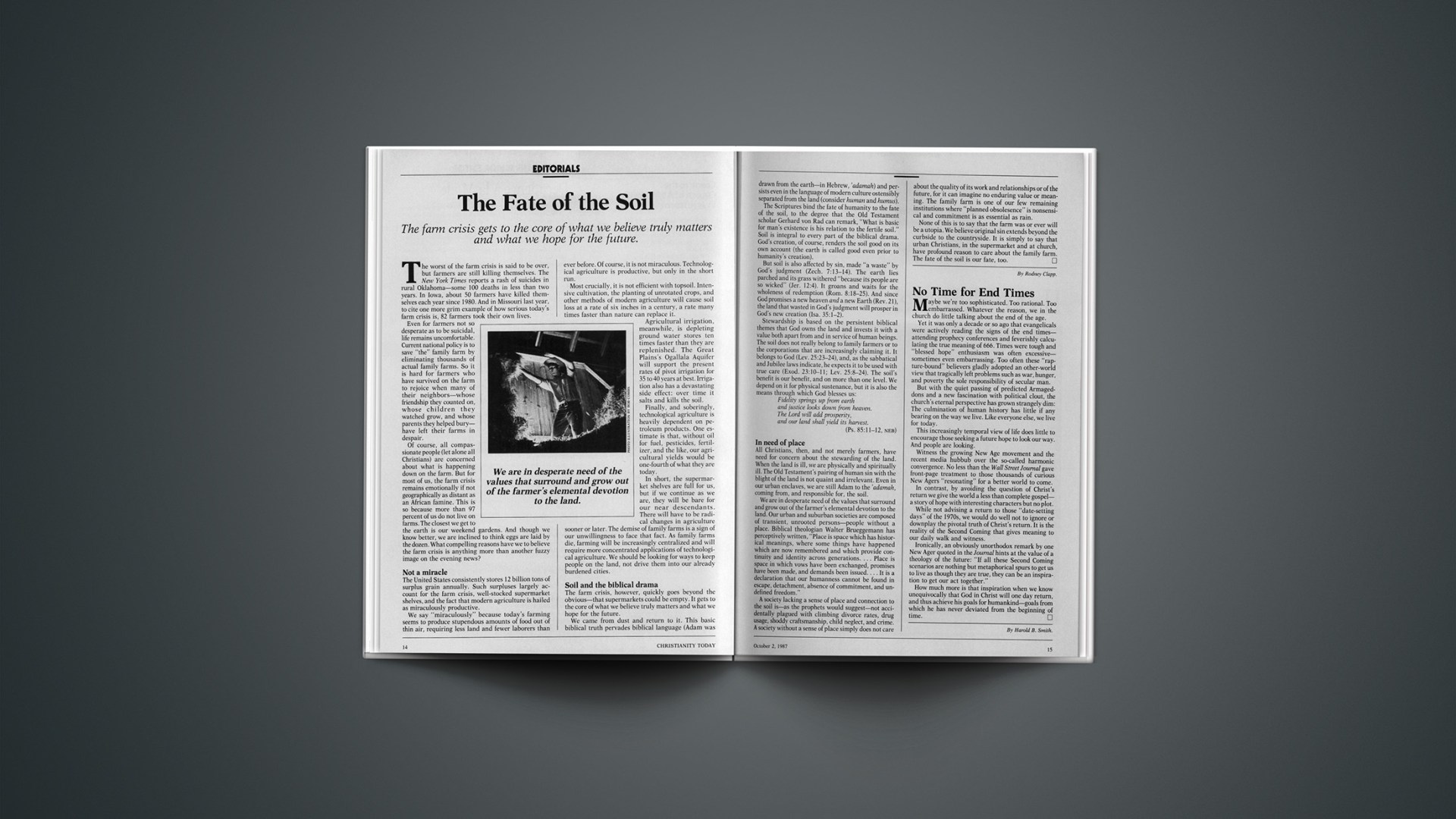May be we’re too sophisticated. Too rational. Too embarrassed. Whatever the reason, we in the church do little talking about the end of the age.
Yet it was only a decade or so ago that evangelicals were actively reading the signs of the end times—attending prophecy conferences and feverishly calculating the true meaning of 666. Times were tough and “blessed hope” enthusiasm was often excessive—sometimes even embarrassing. Too often these “rapture-bound” believers gladly adopted an other-world view that tragically left problems such as war, hunger, and poverty the sole responsibility of secular man.
But with the quiet passing of predicted Armageddons and a new fascination with political clout, the church’s eternal perspective has grown strangely dim: The culmination of human history has little if any bearing on the way we live. Like everyone else, we live for today.
This increasingly temporal view of life does little to encourage those seeking a future hope to look our way. And people are looking.
Witness the growing New Age movement and the recent media hubbub over the so-called harmonic convergence. No less than the Wall Street Journal gave front-Page treatment to those thousands of curious New Agers “resonating” for a better world to come.
In contrast, by avoiding the question of Christ’s return we give the world a less than complete gospel—a story of hope with interesting characters but no plot.
While not advising a return to those “date-setting days” of the 1970s, we would do well not to ignore or downplay the pivotal truth of Christ’s return. It is the reality of the Second Coming that gives meaning to our daily walk and witness.
Ironically, an obviously unorthodox remark by one New Ager quoted in the Journal hints at the value of a theology of the future: “If all these Second Coming scenarios are nothing but metaphorical spurs to get us to live as though they are true, they can be an inspiration to get our act together.”
How much more is that inspiration when we know unequivocally that God in Christ will one day return, and thus achieve his goals for humankind—goals from which he has never deviated from the beginning of time.
By Harold B. Smith.










